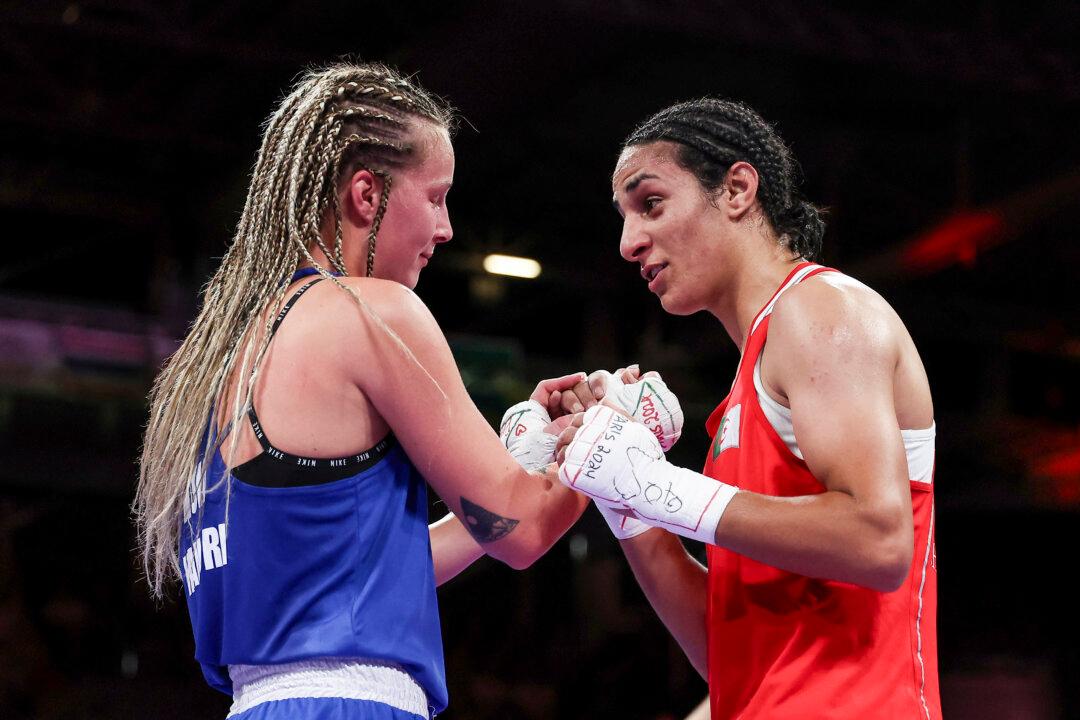Algerian boxer Imane Khelif secured an Olympic medal in Paris on Saturday after winning against Anna Luca Hamori of Hungary in a unanimous 5–0 points decision in a quarterfinal match in the women’s 66-kilogram category.
Khelif is engulfed in controversy over gender eligibility after the 25-year-old was disqualified from a women’s boxing event last year after failing to meet eligibility criteria.





